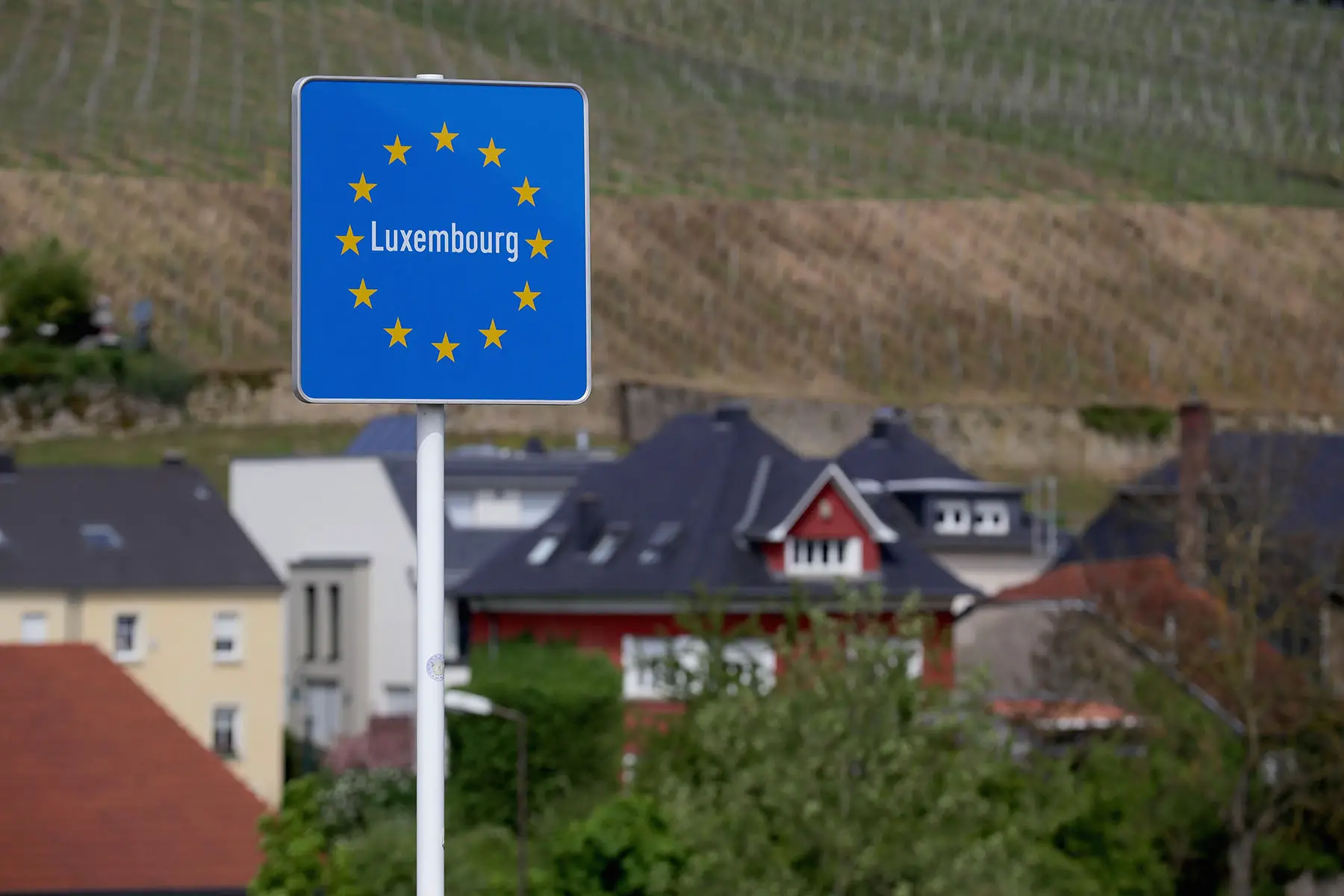It takes a lot of work to set up your life in a new country, but sometimes you find just the right fit and decide you want to stay for a long time. In Luxembourg, once you’ve gotten settled and spent at least five consecutive years living there, you’ll be able to apply for permanent residence. While you won’t have all the same rights as Luxembourgish citizens, you will be able to live there indefinitely as long as you remember to renew your permanent residence on time.
If this is something you are considering, read on for more information on the following:
- Permanent residence in Luxembourg
- What is the difference between Luxembourgish citizenship and permanent residence?
- What are the requirements for permanent residence in Luxembourg?
- How do you apply for Luxembourgish permanent residence?
- Permanent residence costs in Luxembourg
- Renewing your Luxembourgish permanent residence
- Permanent residence in Luxembourg for family members
- Losing your Luxembourgish permanent residence rights
- What to do if your application for permanent residence in Luxembourg is rejected
- Useful resources
lingoking
Do you need help translating documents? Make sure all your legal proceedings go smoothly by using lingoking for all your translation needs. Whichever papers you need translated, lingoking's network of professional translators can help. Order online 24/7 and take some of the stress out of your legal procedure.
Permanent residence in Luxembourg
In Luxembourg, permanent residence allows you to live there indefinitely and enjoy additional benefits that other foreign-born residents don’t have.

Luxembourg has a very high population of internationals, with almost half of its legal residents not being citizens. In most cases, people who have been living in Luxembourg for at least five years qualify for permanent residence and are allowed to apply.
All immigrants and new citizens go through Luxembourg’s Immigration Directorate of the Ministry of Foreign and European Affairs. This is the government agency that oversees all immigration issues, including permanent residence. Since there are several types of permanent residence permits in Luxembourg, which one you want to apply for depends on your personal circumstances and nationality.
What is the difference between Luxembourgish citizenship and permanent residence?
Citizenship and permanent residence both allow you to live, work, and study in Luxembourg for an indefinite period of time, as well as buy property.
However, Luxembourgish citizenship does come with some benefits that permanent residents do not get. For example, you will be allowed to vote in elections and referendums, as well as run for political office. In fact, voting is compulsory for citizens in Luxembourg. Nationals can also apply for local ID cards and passports. And since Luxembourg recognizes dual citizenship, you will not have to renounce your current nationality.
Citizens can also travel freely in and out of Luxembourg and remain abroad as long as they want. Conversely, while permanent residents can also travel freely, they cannot stay out of Luxembourg for more than six months at a time.
What are the requirements for permanent residence in Luxembourg?
There are several categories of permanent residence in Luxembourg, the requirements for each being relatively similar. These are:
- Long-term resident status for third-country nationals
- Permanent residence for EU citizens
- Permanent residence for British nationals and family members who are covered by the Withdrawal Agreement
- Permanent residence for non-EU nationals who are family members of EU citizens
To be eligible for any of these four types of permanent residence, you must be able to prove that you have lived in Luxembourg for a minimum of five years. During this time period, you can be absent for up to six consecutive months or a total of 10 months, or up to 12 months for reasons such as pregnancy, illness, or studying. You must also hold a valid passport from your country of nationality.

In some cases, the Luxembourgish government will make exceptions to the five-year rule. For example, EU citizens who retire after living in Luxembourg for three years or those who have worked in the EU within the last year may expedite their application for permanent residence.
Citizens of non-EU countries must prove that they have enough money to support themselves and any dependents. They must also have suitable housing and health insurance, and prove that they are not a threat to public order or safety.
How do you apply for Luxembourgish permanent residence?
Since there are different types of permanent residence in Luxembourg, the procedure for applying for each may differ slightly. However, all applications must go through the Immigration Directorate of the Ministry of Foreign and European Affairs.
For non-EU nationals
The permanent residence application process is most intensive for non-EU, or third-country, nationals. You will need to complete the application form and submit the following:
- A valid passport
- Proof of stable income for five years before the application
- Rental agreement or property deed proving suitable housing
- A recent certificate of affiliation for the past five years from the Joint Social Security Centre (Centre commun de la sécurité sociale – CCSS)
- Proof of health insurance
- A background check from your time living in Luxembourg
- Proof of your integration into Luxembourgish society (e.g., certificate of a language course, club membership, testimony from friends)
- Power of attorney (if applicable)
While German, French, and Luxembourgish are the official languages of Luxembourg, government agencies also accept documents in English. As such, if any of your documents are in another language, you will need to have them officially translated. These should come from a “sworn translator,” which might be an individual such as a notary public or lawyer, or a professional company such as lingoking which has experience in translating documents in Luxembourg.
After submitting your application and documents, you will receive a receipt that acts as your temporary authorization to stay in Luxembourg until a decision is made. Usually, you will have a decision within six months and you cannot travel during this time period. If successful, then you will have to make an appointment with the Immigration Directorate to provide your biometric data.
For EU nationals
If you are an EU citizen who has lived in Luxembourg for at least five years, then your application for permanent residence is very straightforward. You simply need to submit a request to the Immigration Directorate and attach a copy of your ID or passport.
For British citizens
If you are a UK citizen, have been living in Luxembourg for at least five years, and are entitled to benefit from the Withdrawal Agreement, then you can apply for permanent residence in Luxembourg. To do this, you will need to fill out the relevant application form and submit this to the Immigration Directorate, along with a copy of your passport.

If the application is successful, you will then have to make an appointment to submit your biometric data at the Immigration Directorate, and then return later to collect your permit.
Permanent residence costs in Luxembourg
The basic cost of applying for permanent residence in Luxembourg differs by the type of permit you are applying for:
- Non-EU citizens/third-country nationals: €80
- EU citizens: free
- British citizens: free
You may also need to factor in costs besides the base application fee. For example, if your documents are not in English, German, or French, you will need to pay to have them translated and certified. If you are using an intermediary, such as a lawyer, to file your application, that also involves additional expenses.
Renewing your Luxembourgish permanent residence
In Luxembourg, the validity of your permanent residence permit depends on the type you apply for:
- Non-EU citizens: 5 years
- EU citizens: unlimited
- British citizens: 10 years
Non-EU nationals who want to renew their permanent residence in Luxembourg must do so within two months of its expiration date. They need to file the renewal application form with a copy of their passport and an extract of their Luxembourg criminal record with the Immigration Directorate. This also comes with an application fee of €80.
British citizens who wish to maintain their permanent residence in the country can simply request a renewal of their permit at the Immigration Directorate.
Permanent residence in Luxembourg for family members
Usually, each family member needs to make an individual application for permanent residence in Luxembourg. As such, each person will also need to fulfill all the conditions for permanent residence, including living in the country for five consecutive years.
However, the situation is slightly different for non-EU nationals seeking permanent residence as family members of an EU national. This permit option is only available to spouses and partners, children, and parents of EU citizens.
Those wishing to apply for this permit should submit a request for permanent residence in Luxembourg with the Immigration Directorate, along with a copy of their current passport. After applying, you can expect a decision on your application within six months.

This type of family visa is valid for 10 years and is automatically renewable if you submit a request in time and have a valid passport from your country of origin.
Losing your Luxembourgish permanent residence rights
In general, non-EU citizens will lose their permanent residence in Luxembourg if they leave the country for more than six months at a time. However, if you are an EU national — or the family member of one — you can remain outside of Luxembourg for up to two years without losing permanent residence.
What to do if your application for permanent residence in Luxembourg is rejected
Unfortunately, in some cases, applications for permanent residence in Luxembourg may be denied. If, for some reason, your application is not successful, you may want to contest the decision. In this case, you will first need to speak to the officer managing your case for more information on the reason behind the refusal and to see your options.
If you cannot get a response or help with the appeal process and think you have a good case, you might need to hire a lawyer and take the issue up with the Luxembourgish Administrative Court.
Useful resources
- Immigration Directorate – Ministry of Foreign and European Affairs’ sector that handles permanent residence
- Luxembourg Administrative Court – body that handles permanent residence application appeals
- Guide to Luxembourg – an administrative guide to Luxembourg for third-country nationals





